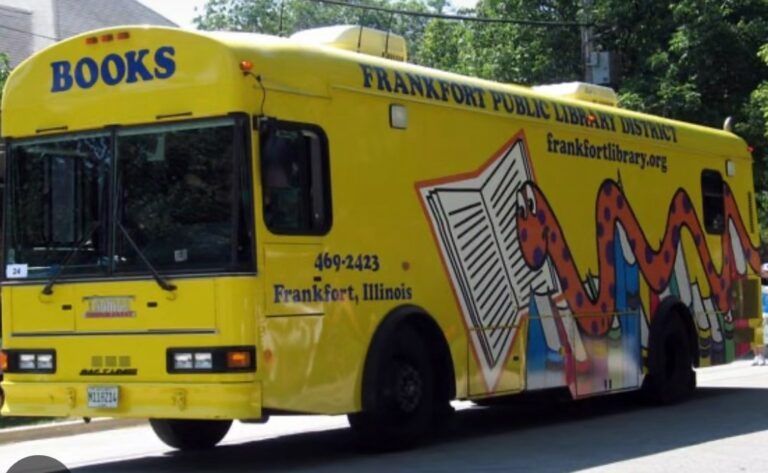BY Yvonne S. Williams | May 13, 2024

Sim Loh is a family partnership coordinator at Children’s Village, a nationally-accredited Keystone 4 STARS early learning and school-age enrichment program in Philadelphia, Pennsylvania, serving about 350 children. She supports children and families, including non-English speaking families of immigrant status, by ensuring equitable access to education, health, employment, and legal information and resources on a day-to-day basis. She is a member of the Children First Racial Equity Early Childhood Education Provider Council, a community member representative of Philadelphia School District Multilingual Advisory Council, and a board member of Historic Philadelphia.
Sim explains, “I ensure families know their rights and educate them on ways to speak up for themselves and request for interpretation/translation services. I share families’ stories and experiences with legislators and decision-makers so that their needs are understood. Attending Leadership Connections will help me strengthen and grow my skills in all domains by interacting with and hearing from experienced leaders in different positions. With newly acquired skills, I seek to learn about the systems level while paying close attention to the accessibility and barriers of different systems and resources and their impacts on young children and their families.”

This document may be printed, photocopied, and disseminated freely with attribution. All content is the property of the McCormick Institute for Early Childhood.
Early childhood care providers and administrators are often encouraged to connect with community resources to enhance programming for the children in their care. Sometimes, the idea of connecting with others seems out of reach. But often, resources and connections are right in front of us.
As a family child care (FCC) provider, I built on a connection with my local librarian to provide the children in my program with experiences around literacy, language, and social development—all skills that helped to prepare them to be successful in kindergarten.

When my children were young, we participated in so many of the activities my local library hosted that the librarian was familiar with myself and my girls as they progressed into elementary school. One of our favorite activities was when the bookmobile came to our neighborhood during the summer months. The bookmobile stopped about a block from our home for only about 30 minutes. Our walking (sometimes running) trips to the bookmobile were a big deal! During the school year, the bookmobile would go to the girls’ elementary school each week, so having the bookmobile in our neighborhood during the summer helped build an exciting home and school connection for me and my girls because I experienced it with them.
Around the time my youngest child was 7, I opened my family child care program, and the librarian noticed that I began checking out many books for children younger than 7. Because she was familiar with my girls and knew they did not fall into this age range, she asked if I had other young children at home. She was right. In fact, I had four preschoolers in my house, only they were my FCC children! When she learned of my child care program, she arranged for the summer bookmobile to change its location from a block away to right in front of my house. Now, we only needed to step out of the front door to find the magnificent yellow bookmobile bus with the giant mural of a bookworm reading a book. The children in my program, some of whom may not have had any previous exposure to the library in their communities, were now treated to their own private library experience once a week!
Children do not learn in a silo. Forming relationships with community resources enhances learning for children. Partnering with community resources and encouraging learning outside the classrooms can also support healthy transitions and positive achievement for children. Having a community connection with the library and the bookmobile stop in front of my program also served as excellent marketing. Families in my neighborhood saw the bookmobile, and the librarian recommended my program to families she met.
The Business Administration Scale for Family Child Care (BAS) and the Program Administration Scale, 3rd Edition (PAS-3) highlight the importance of community outreach and relations for early childhood programs. The tools provide ideas for possible community organizations to engage with and also explore how such connections are great opportunities to market your business.
Reflection Questions
Take a few minutes to enter your program’s address into Google Maps and then zoom in and out to explore community organizations located nearby.
- What is one new community resource you found that can enhance your program?
- What community resources do you already utilize to support your families? How might you be able to build on those connections?
Click here to learn more about the BAS and PAS-3 or the professional learning opportunities about family and community partnerships offered by the McCormick Center for Early Childhood Leadership.
Yvonne Williams, Ed.D. is a Quality Training Specialist at the McCormick Center for Early Childhood Leadership at National Louis University. In this role, she serves as a National Anchor for the Program Administration Scale (PAS) and Business Administration Scale for Family Child Care (BAS). Prior to this position, she worked as an Assessor and Training Specialist conducting ERS, BAS, and CLASS assessments for the state of Illinois. Yvonne holds a master’s degree in early childhood administration from National Louis University and a doctorate in the teaching and learning program at National Louis University. She is also an Adjunct Professor at National Louis University.





